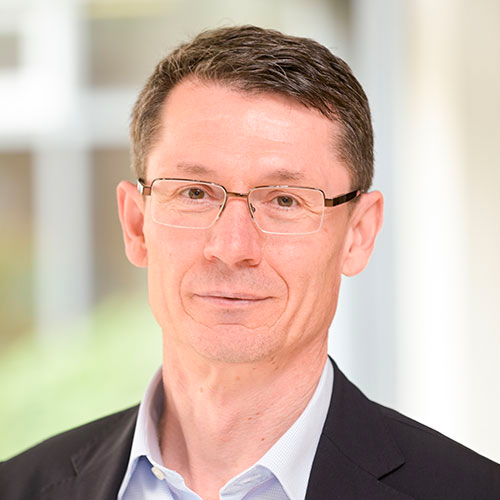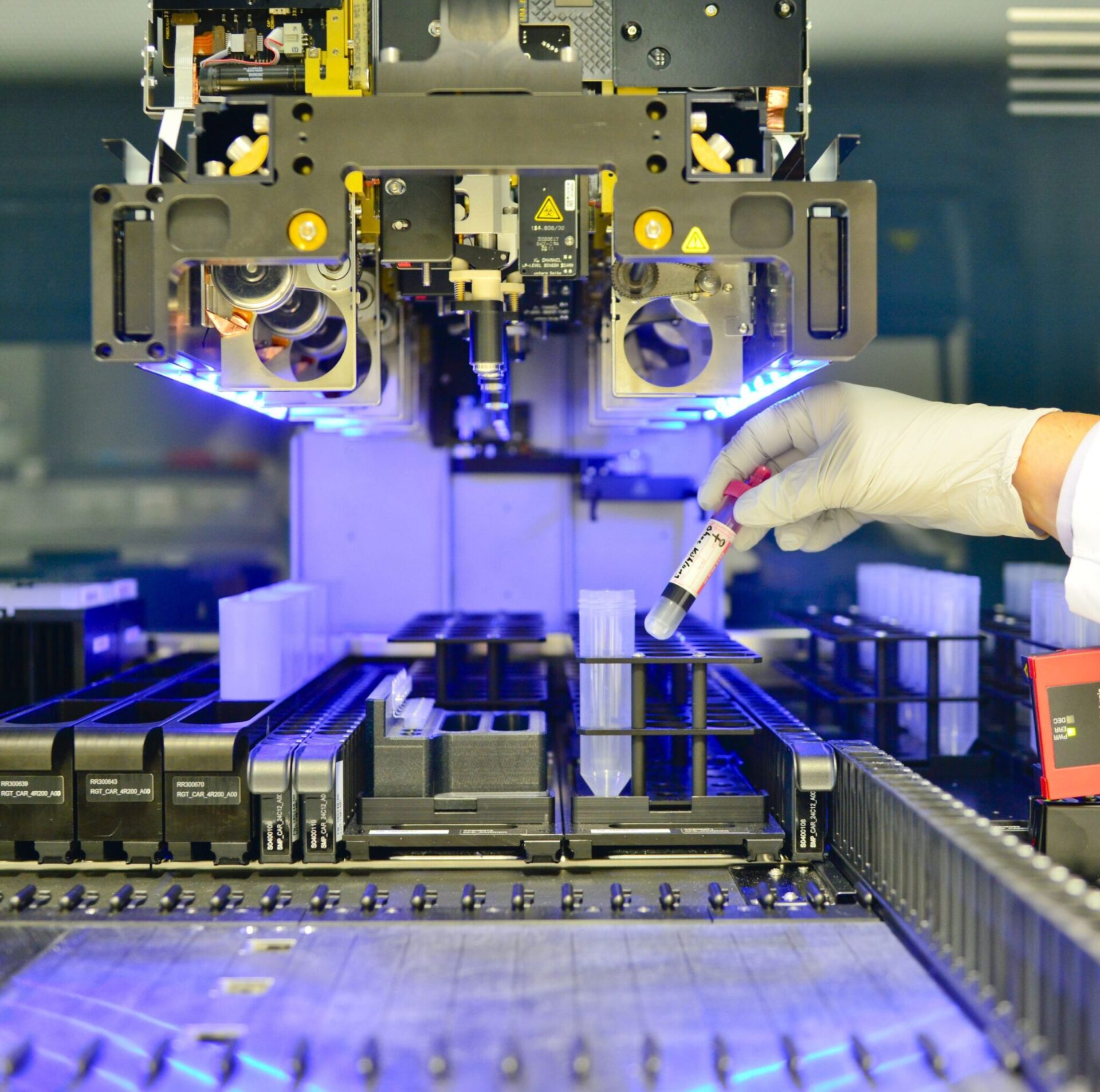Foto: Tom Figiel, HUB / MHH
Corona: The MHH’s package of measures
Corona viruses have caused two epidemics in the last two decades and now a severe pandemic that has already claimed hundreds of thousands of lives worldwide. As the pandemic is still ongoing, it is impossible to predict its extent. This makes it all the more important to implement appropriate measures quickly, to gain new knowledge about COVID-19 and to develop efficient strategies to mitigate the consequences of the pandemic and to be better prepared for newly emerging corona viruses in the long term.
The Ministry of Science and Culture of Lower Saxony (MWK) is providing the Hannover Medical School (MHH) with eight million euros for research into and the fight against SARS-CoV-2 and COVID-19. The comprehensive package of measures covers several research areas. Thanks to its strong anchoring in infection research, the MHH can learn from acute cases and derive future prevention and therapy measures from them. Scientists of the MHH priority area “Infection and Immunity” have developed a concept for research into the pathogen SARS-CoV-2 and the disease COVID-19 in close cooperation with the priority clinics and wards of the MHH, the excellence cluster RESIST, theHelmholtz Centre for Infection Research (HZI), TWINCORE and the Centre for Individualised Infection Medicine(CiiM). The research project includes approaches to develop vaccination strategies, to understand the severity of disease progression and to identify broad spectrum agents. The scientists also want to develop innovations for prevention, therapy and management. Overall, the aim is to create synergies between the areas and to immediately put short- and medium-term solutions into practice in addition to long-term findings.
An important part of the research program is the establishment of a COVID-19 patient cohort to systematically collect and store biological material. Through broad molecular characterization, it serves to clarify the development of the disease and the different degrees of severity of the disease, as well as to improve the treatment of COVID-19 patients. The establishment of this cohort offers a unique opportunity to better understand the pathophysiology of the disease. The aim is to detect biomarkers and the associated metabolic pathways and to use them to develop therapeutic options. The very different clinical courses of the disease suggest that a mixture of genetic and immunological factors as well as certain metabolic processes are responsible for its severity. Differently aggressive virus strains could also be the reason.
The MHH has started to establish a COVID-19 cohort of 1000 patients and controls. Patients with varying degrees of severity are recruited from the MHH and the Klinikum Region Hannover (KRH). The participating MHH clinics with COVID-19 patients are working closely with the head of the central biobank, Prof. Dr. Thomas Illig. Since the focus of infection is on the lungs, it is useful to obtain a broad collection of biomaterials, i.e. not only blood, but also living blood cells, plasma, serum, saliva and bronchoalveolar lavage. The samples can be used for genomic and post-genomic (proteomics, transcriptomics, metabolomics), but also for immunological follow-up analyses. Funding for these so-called omics analyses is currently still outstanding.
As part of this funding, the scientists also intend to develop a vaccine against SARSCoV-2 and neutralizing antibodies for therapy. To this end, the project hopes to obtain antibodies from patients who have overcome COVID-19 disease.
High-quality biobanking using sample preparation on a pipetting robot (Photo: Thomas Figiel)
Contact

Prof. Dr. Thomas Illig
L3S member Thomas Illig is the scientific director of the Hannover Unified Biobank (HUB), the central biobank of the MHH, and head of research of the Institute of Human Genetics at the MHH.

Dipl.-Biol. Inga Bernemann
Biologist Inga Bernemann has been project manager of the German Center for Lung Research (DZL) at the BREATH site in the Biobanking Division since 2012 and heads the Quality Management Division of the Hannover Unified Biobank (HUB).




